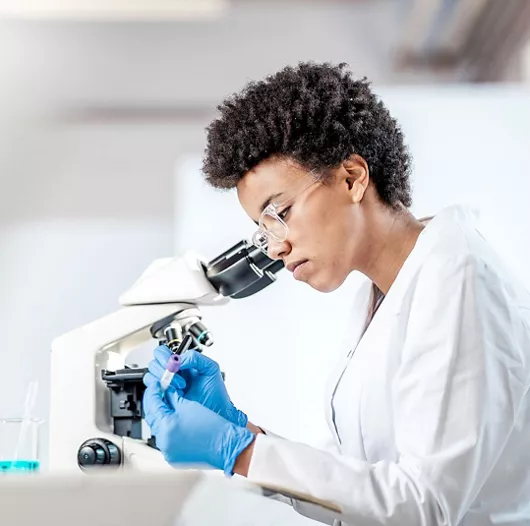Hitachi Vantara Sponsors 18 Ambitious Students to Attend National STEM Festival


Unique achievements in science, technology, engineering, and math to be showcased In Washington
Encouraging students to pursue careers in science, technology, engineering, and math (STEM) fosters a generation of problem-solvers equipped to tackle complex challenges. To help discover aspiring mathematicians, engineers, and scientists among U.S. middle schools and high schools, Hitachi Vantara sponsored 18 students to attend the National STEM Festival, hosted by the U.S. Department of Education in partnership with EXPLR. The students will participate in a Student Innovator Expo on April 13 in Washington, a nationwide event that showcases more than 150 projects across six thematic areas: Environmental Stewardship, Future Foods, Health & Medicine, Powering the Planet, Tech for Good, and Space Innovation.
Hitachi Vantara has selected these 18 young women from low-income regions and awarded them with an all-expense-paid trip to attend the festival. Hitachi’s participation in the event reflects a dedication to educational equality that extends to the top of the executive ranks. CEO Sheila Rohra, born into an immigrant family from India, is an advocate for women holding leadership roles in the workplace. She sets an example of diversity while also encouraging women to pursue careers in technology. “My grandfather was a very progressive thinker, and he pushed the family to give me the same opportunity as they would traditionally give for boys,” she explained in a recent blog. “He decided that I wasn’t going to be helping with cooking or cleaning, because he wanted me to spend that time studying instead.”
One of the 18 young women sponsored by Hitachi is Ani Sophia Nishanian, a 7th-grade student from Rocky Run Middle School in Clinton, Virginia. Like Sheila Rohra, Ani has long been interested in the sciences. After winning an award from the Institute of Scrap Recycling Industries, where she presented a project about the hazardous impact of plastic pollution on the environment, she has been developing biodegradable plastic alternatives from natural, renewable sources. “Participation in the National STEM Challenge taught me many valuable lessons,” she says. “Having an idea is not enough to be successful in a project. One should be equipped with enough knowledge to be able to scientifically support one’s hypothesis and propose solutions. I am grateful for this amazing opportunity to participate in the National STEM Challenge.”
A self-described “tinkerer” from Farmington, Connecticut, Rhea Doshi has participated in science fairs since she was in 7th grade. Her current interest in the biomedical sciences has raised her awareness of the health hazards of pollutants in our drinking water, motivating her to develop a cost-effective way to filter out microscopic particles of plastics. Rhea created an inexpensive microfilter using coconut fibers and activated charcoal called Coco-Pure that can remove these microplastics from drinking water. She is also interested in learning about the potential of CRISPR gene editing technology to develop microbes that can eat microplastics. “After learning about the hazardous impact of plastic pollution on the environment, I have been trying to conduct experiments to find solutions for reducing plastic’s deadly effects on the ecosystem and our everyday lives,” she adds.
Laasya Acharya, an 11th grader at William Mason High School in Mason, Ohio, has always been interested in science and technology, especially computer coding. “My interest was first piqued when I was seven years old and saw an ad for the LEGO Mindstorms EV3 kit in a magazine,” she recalls. That popular robotics kit fomented an obsession with harnessing science and engineering to solve societal problems. While traveling in India with her family, Laasya was distressed to witness widespread hunger, partly because of crop loss on local farms. In many cases, she realized, farmers couldn’t detect common plant diseases early enough to adequately fight the problem. At the STEM festival, Laasya will demonstrate how her unique Ceres device can quickly identify common plant diseases.
These young women, and more than 100 other Student STEM Champions, will showcase their solutions at the festival on April 13. Hopefully, many of them will follow Sheila Rohra’s example: her focus on academics allowed her to become an electrical engineer in an era when there were very few women entering the field. Today, Hitachi Vantara’s CEO works diligently to create a corporate culture that encourages transparency, respect for all employees, and varying points of view. That same mindset of diversity, equity, and inclusion has informed Hitachi’s selection of 18 students for the National Stem Festival.
Learn more about Hitachi Vantara’s commitment to create positive impact.
Good luck, students!

With over three decades of experience, David A. Chapa specializes in go-to-market strategy, product marketing, and technical storytelling. His career spans leadership roles across AI, storage, data protection, and cloud markets, where he has helped organizations translate complex technology into clear, compelling narratives.